Search Images
Browse Content (p. 1659)

Image
Greek Tragedy Mask
A terracotta tragic theatre mask, 200-250 BCE. (Agora Museum, Athens)
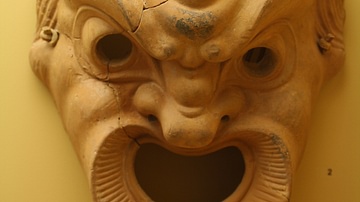
Image
Greek Terracotta Comedy Mask
A terracotta comedy mask, 200-250 BCE. (Agora Museum, Athens)

Image
Roman Priest
A portrait bust of a Roman priest wearing his laurel wreath. 235-245 CE. (Agora Museum, Athens)
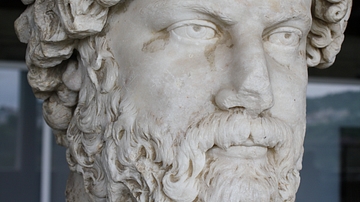
Image
Ailius Verus
A portrait bust of Ailius Verus, 2nd century CE. Ailius Verus was the adopted heir of Hadrian but died before succession. (Agora Museum, Athens)
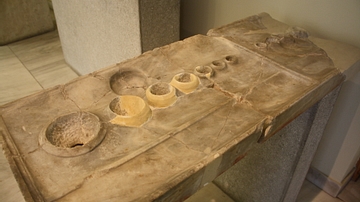
Image
Sekomata (Liquid Measuring Table)
A sekomata used to measure standard quantities of liquids. From the agora of Piraeus. (Archaeological Museum, Piraeus)

Image
Greek Tragedy Theatre Mask
A votive offering in a the form of a larger-than-life bronze tragedy theatre mask. Possibly by Silanion, 4th century BCE. (Archaeological Museum of Piraeus)

Image
Three Graces Relief, Piraeus
A marble relief plaque showing the Three Graces. Copy of a c. 470 BCE original by Sokrates the Boetian sculptor. (Archaeological Museum, Piraeus)
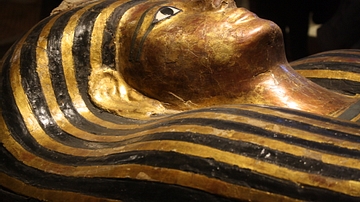
Image
The Middle Sarcophagus of Kha (Detail)
A detail of the gilded and black bitumen middle sarcophagus of Kha, New Kingdom, Dynasty XVIII (1428-1351 BCE). Egyptian Museum, Turin, Italy
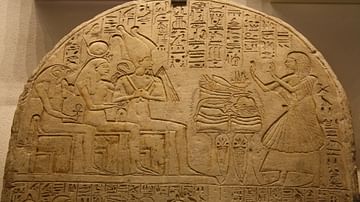
Image
Stele of Pay
The limestone 'Stele of the Scribe Pay'. On the left the gods Osiris, Isis and Horus watch various funerary ceremonies involving the deceased. New Kingdom, Dynasty XIX, 1292-1186 BCE, provenance unknown. (Egyptian Museum, Turin)
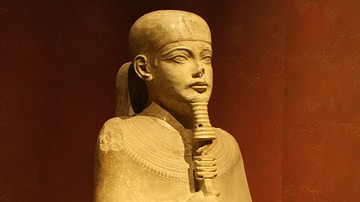
Image
Ptah
Limestone statue of the Egyptian god Ptah, Temple of Amun, Thebes, 18th-20th Dynasty, 1550-1070 BCE.
Egyptian Museum, Turin.